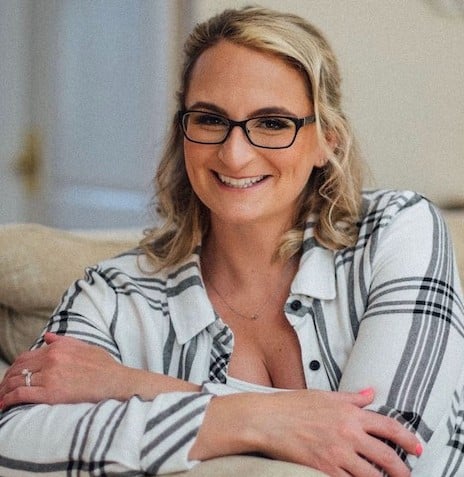The list of dental schools without prerequisites is short, with only one known program officially not requiring them. While most dental schools mandate science courses before applying, some have more lenient requirements. With low dental school acceptance rates, students must consider their academic profiles carefully. This article explores these programs and discusses the importance of prerequisites for dental school candidates.
>>Want us to help you get accepted? Schedule a free initial consultation here <<
Dental Schools Without Prerequisites
When it comes right down to it, there are no dental schools without any prerequisites among the 80 accredited dental schools in North America. However, there are schools that will not require Biology – Chemistry – Physics courses and lab work, which is almost always required to accompany these courses and is considered a prerequisite.
With that said, the following list is made up of dental schools with the fewest prerequisite course requirements and schools that require the least amount of science prep.
10 Dental Schools Without Prerequisites
- Case Western Reserve University School of Dental Medicine: Requires a minimum of 90 semester hours; a bachelor’s degree is strongly recommended and 6 semester hours of English or similar reading/writing-intensive coursework in the humanities. No other prerequisites are required; instead, the school seeks creativity and innovation in applicants as well as students with knowledge of foreign languages, especially American Sign Language.
- Creighton University School of Dentistry: Requires 2 semesters of English (and has a strict shadowing requirement) but has no other prerequisites. However, students are recommended to take upper-level courses such as Anatomy, Physiology, Microbiology, Genetics, Neuroscience, Immunology, Pharmacology, Molecular Biology, and Histology. Note that less than 1.5% of dental schools require Immunology or Histology.
- Herman Ostrow School of Dentistry of USC: This school is unique in that it requires English Composition (1 year) and Philosophy, History, or Fine Arts (1 year) as its only prerequisites, and the requirement can be waived for students with a bachelor’s degree from the US or Canada.
- McGill University Faculty of Dental Medicine and Oral Health Sciences: Depending on where you graduated, you must have a 4-year bachelor’s degree (Canadian and International) or a 3-year bachelor’s degree with a DEC (Québec) to apply to McGill. There are no additional prerequisites.
- Medical University of South Carolina James B. Edwards College of Dental Medicine: In addition to English courses, this school also requires Mathematics, such as Calculus, Statistics, or College Algebra.
- New York University College of Dentistry: Applicants with a bachelor’s degree or 90 completed credits and a GPA of 3.5+ will be preferred. Some intensive writing English courses are also required.
- Temple University Maurice H. Kornberg School of Dentistry: Six credit hours in English are required, and taking some advanced science courses, such as Anatomy, Biochemistry, Histology, and Physiology, is highly recommended.
- University of Montreal (Université de Montréal) Faculté de médecine dentaire: A Québec science-based diploma of collegial studies (DEC), DEC in another discipline plus a Mathematics prerequisite, or a bachelor’s degree is required for entry to this 5-year DMD degree. French competency is also required.
- University of the Pacific Arthur A. Dugoni School of Dentistry: This is the only dental school in the US where you can complete a four-year academic curriculum in three calendar years. A bachelor’s degree is preferable but not required, as well as some English courses.
- High Point University Workman School of Dental Medicine: This new dental school claims that it has no prerequisites at all! Read on to discover how this is embodied by their unique approach to admissions.
Should You Skip Dental Schools Prerequisites?
Students who search for dental schools without prerequisites have their own reasons for doing so, but it isn’t advised that you avoid them purposefully, as there could be consequences.
Here are a few things to consider:
- Limited School Options: Not completing prerequisites significantly reduces the number of dental schools you can apply to, limiting your choices and opportunities.
- Future Academic Challenges: Prerequisites are essential because they cover foundational sciences integral to dentistry. If you dislike these subjects, it might indicate that dentistry isn’t the right fit for you.
- DAT Preparation: Prerequisite courses are crucial for the Dental Admission Test (DAT). Skipping these courses can make it challenging to study effectively and perform well on the DAT.
- Foundation for Success: Prerequisites provide the necessary background knowledge and skills that will be vital throughout dental school and your career.
- Academic Readiness: Completing these courses demonstrates your ability to handle rigorous academic work, a quality that dental schools look for in applicants.
- Skill Development: Prerequisites help develop critical thinking and problem-solving skills, which are essential for dental practice.
Perhaps your interest in dentistry came along late in your undergrad, or maybe you are struggling academically and feel daunted by GPA requirements. Intent on a career in health care, you might be pondering, “why do you want to be a dentist?”. Some mature students come around to dentistry as a second career, or, after asking themselves, “am I too old for medical school or dental school?”…especially if they don’t have the standard prerequisites.
No matter what path you’ve taken toward dentistry, remember: skipping prerequisites might seem like a shortcut, but it can hinder your chances of success both in getting into dental school and thriving once you’re there. Of course, there are always exceptions, but it’s best you think about your future and err on the side of caution.
You may wish to consider applying to the High Point University Workman School of Dental Medicine (#10 on our list) if you lack prerequisite courses for dental school. This new program is more ‘holistic’ and welcomes applicants from diverse educational backgrounds, prioritizing qualities like leadership and community service. The Workman School of Dental Medicine requires no degrees, prerequisite courses, standardized tests (e.g., DAT), or shadowing hours. Nor are there any application or supplemental fees. The school does require the CASPer and Duet assessments, part of the Altus Suite, each of which has a fee. Because it is a new program, there is currently an early commitment option for priority evaluation, interview, and admissions offers, with a rolling admissions process that can result in an acceptance as soon as two weeks after the interview.
While this may all sound appealing to students looking for dental schools without prerequisites, a closer look reveals that to demonstrate the qualities sought by the Workman School of Dental Medicine, you will still have to fulfill various criteria to align your dental school application experiences, knowledge, and attributes with the CARE Curriculum they propose.
CARE stands for the following dental school model:
- Clinician
- Advocate
- Researcher
- Entrepreneur
And, while there are no required courses, there are preferred and most preferred courses:
To demonstrate the Clinician component (the “C” in CARE), the most preferred courses are: To demonstrate the Researcher components (the “R” in CARE), some of the most preferred courses are: Other preferred courses comprise typical dental school prerequisites, such as: Although the school states that a degree is not required, it does mention that candidates who are on track to earn a Bachelor of Science or Arts degree will be preferred.
This example of the Workman School of Dental Medicine shows that even when courses are not labeled prerequisites, the same skill set is always required for dental school.
This brings up a point that all dental school candidates should keep in mind: even if courses are described as recommended or preferred, rather than required, it is wise to think of any course a school recommends as a prerequisite of sorts. Yet, because it is impossible to take every single course, students may wish to consider dental school admissions consulting services to help them sort through the schools that interest them and plan out their prerequisites well ahead of time.
“Looking back, I wish I had help applying to dental school. I did everything on my own and had no idea what I was doing or how to stand out. Now that I am an Academic Consultant, I feel lucky that I even got into dental school at all! My application could have been so much stronger if I had guidance.” – Amanda Thompson, General Dentist, Case Western Reserve University
Why Do Dental Schools Have Prerequisites?
Prerequisites are more than just academic milestones; like dental school extracurriculars, they prepare you for the rigors of dental school by providing essential scientific knowledge and skills. Whether through science courses or lab work, these prerequisites lay the foundation for success in oral healthcare. They ensure all students are equipped to handle the complexities of dental education and practice.
If you’re struggling to find your way or just want to have the best chance possible of getting into your dream school, consider working with a dental school advisor to straighten things out. These experts can assist you with many aspects of the admissions process, from helping you draft your dental school personal statement to coaching you on how to prepare for your dental school interview.
“I recently had a great dental school planning session with Dr. Amanda Thompson. She answered all my questions about going into the process of applying to dental schools and gave me some great advice on my steps going forward. Would highly recommend it!” – Tanvi, Former BeMo Student
FAQs
1. ARE THERE ANY DENTAL SCHOOLS WITHOUT PREREQUISITES?
All but one dental school require applicants to have successfully completed science courses (biology, chemistry, physics). However, there are dental schools with limited prerequesites.
2. DO ALL DENTAL SCHOOLS REQUIRE SCIENCE COURSES?
Yes, you will need to complete required science coursework (prerequisites) to apply to dental school. The only possible exception is High Point University Workman School of Dental Medicine.
3. ARE RECOMMENDED COURSES PREREQUISITES?
Technically, recommended courses are not prerequisites, but anything a dental school signals as being important should be considered a requirement.
4. IS LAB WORK A PREREQUISITE FOR DENTAL SCHOOL?
Yes, for the purposes of your application, you should consider the lab work associated with your biology, chemistry, and physics classes a prerequisite. While not all dental schools require lab work, the majority do.
5. IS SHADOWING A PREREQUISITE FOR DENTAL SCHOOL?
Shadowing is not necessarily a prerequisite at all schools (especially Canadian dental schools), but many others do require up to 300 hours of shadowing experience.
6. WHAT ARE THE MOST COMMON PREREQUISITES FOR DENTAL SCHOOL, AFTER SCIENCE COURSES?
Biochemistry, Microbiology, Anatomy, Physiology, Mathematics, and English are the next most common prerequisites.

